In a small village in southwest China, farmer Tingke has been tending bamboo groves for years. His life changed when Lenovo, a global tech powerhouse, began sourcing bamboo fiber directly from his region as part of its packaging supply chain. Today, Tingke is a proud contributor to Lenovo’s sustainability journey, with bamboo from his farm becoming a real component in packaging for laptops and phones, proof that even a small village can help power a global story.
Sustainable Innovation That Makes a Difference
Lenovo has long been committed to sustainability. Back in 2008, the company began replacing plastic foam with biodegradable materials in its product packaging. Bamboo fiber stood out as a green alternative, fast-growing, naturally biodegradable, and globally available.
By 2016, Lenovo had assembled a team of top engineers, led by veteran packaging expert Royal Bai, to tackle the challenge of turning bamboo into a lightweight, durable packaging material that could protect laptops in transit. Developing this new material was not easy; the team had to move past traditional dry-press processes, invent new wet-press techniques, and fine-tune the fiber blend. They also had to overcome skepticism across the industry.
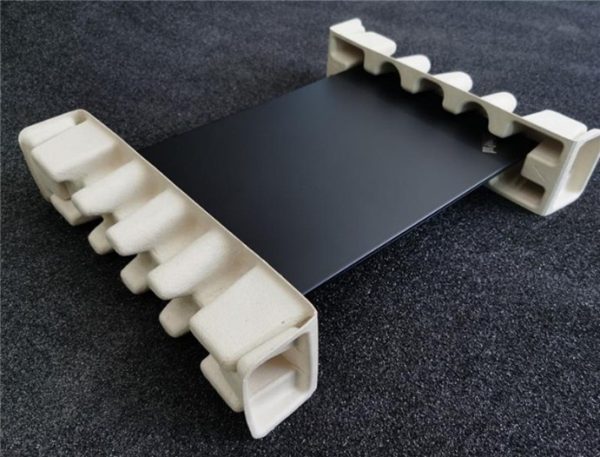

“When we began developing bamboo-fiber materials, many in the industry questioned what we were doing,” Royal Bai recalled. “Traditional plastic foam was cheap and easy, but bamboo fiber was three times more expensive. Even so, we knew this innovation was vital for sustainability, so Lenovo committed to making it happen. Since then, Lenovo has scaled up production, shipping over 30 million products in bamboo-fiber packaging, using more than 4,500 tons of bamboo fiber and reducing its reliance on traditional plastic packaging.”
A Community Powered by Bamboo
Tingke has witnessed a remarkable transformation.
“Back in 2017, our region was one of the first in the province to rise out of poverty — and bamboo played a big part,” Tingke explains. “Today, bamboo groves stretch across the landscape, and the income they generate supports our families all year round. Many households now have cars and motorcycles, and children have better access to education,” he says with pride.
 And perhaps most exciting of all, bamboo from this village, sourced by Lenovo as part of its packaging supply chain, now travels the world in its laptops and phones, proving that a small village can help drive a global sustainability story.
And perhaps most exciting of all, bamboo from this village, sourced by Lenovo as part of its packaging supply chain, now travels the world in its laptops and phones, proving that a small village can help drive a global sustainability story.
A Local Impact with Global Reach
Bamboo is a resource that grows naturally across tropical and subtropical regions — in Asia, Africa, and the Americas — where local communities have long used it for building, crafting, and everyday life. What started in a small Chinese village now serves as a blueprint for sustainable innovation that can benefit communities worldwide.
Today, Lenovo works closely with farmers like Tingke, providing stable markets that help their local economies thrive. At the same time, the company is applying this experience to build a global model — connecting producers and consumers across continents through bamboo’s renewable, low-impact potential.
With its rapid growth, natural resilience, and deep roots in local traditions, bamboo is more than a material. It’s a symbol of how sustainable innovation can create a global network of economic and environmental benefits — a future where heritage, ingenuity, and responsibility work hand in hand.
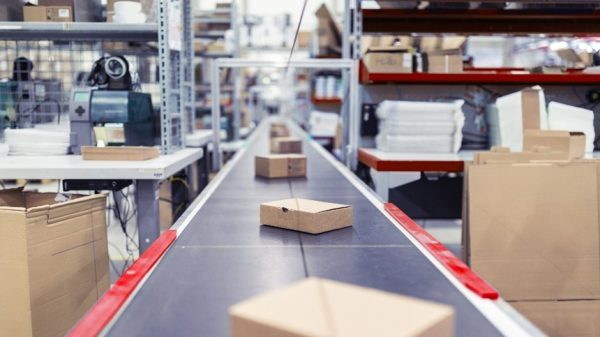 Future with Bamboo
Future with Bamboo
Since launching the “Future with Bamboo” sustainability initiative, Lenovo has steadily expanded the use of bamboo-fiber packaging across its product lines. In 2023, the entire ThinkPad lineup adopted bamboo packaging, significantly reducing plastic waste.
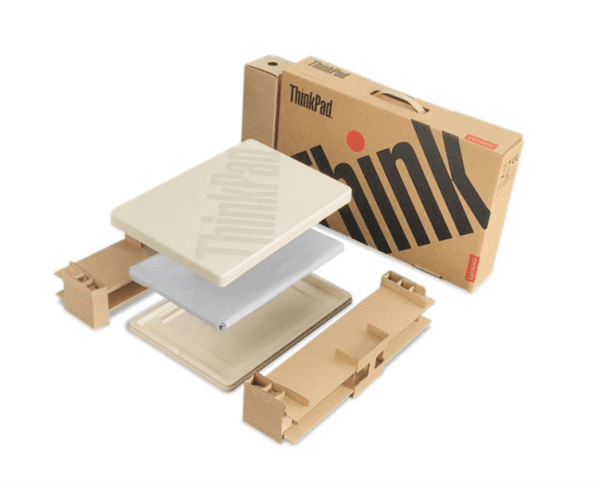
In 2024, Lenovo unveiled a new bamboo emblem on the ThinkPad X1 Carbon Aura AI Edition packaging, highlighting its commitment to innovation and sustainability.
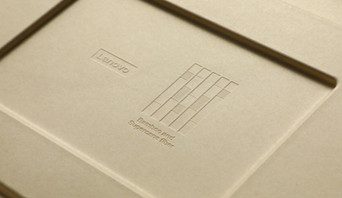
In 2025, flagship products like the ThinkPad X9 series, featured at CES, are already shipping with bamboo-fiber packaging, and Motorola’s foldable Razr 50d has introduced this new packaging as well. Building on these successes, Lenovo is set to further expand its bamboo packaging — both in scale and quality — across future Moto devices, advancing its mission to replace plastic with bamboo.
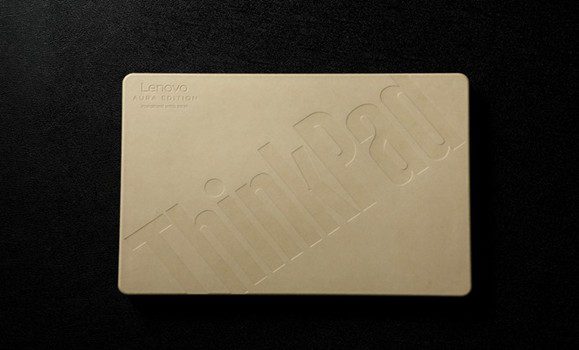
“Bamboo connects tradition with innovation — it’s a renewable material that resonates across cultures and regions,” said Gina Qiao, Senior Vice President, Chief Strategy and Marketing Officer of Lenovo. “That’s why we believe so strongly in its role in creating a more sustainable future.”
And this is only the beginning. Lenovo’s bamboo packaging initiative is part of a broader vision to make sustainable innovation a global reality — where progress and the planet move forward together.
